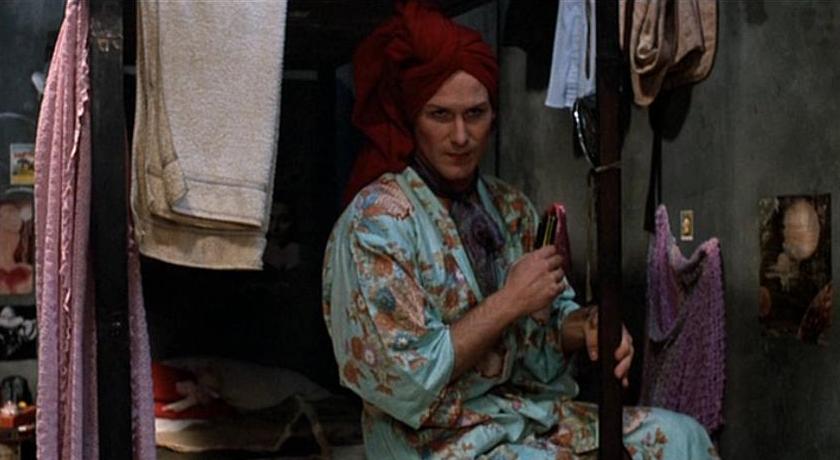
 | |
| Photo © 1985 Island Alive Pictures/HB Filmes | |
| Academy Award Nominations and Winners: | |
| Best Picture | |
| Best Director: Hector Babenco | |
| ★ | Best Actor: William Hurt |
| Best Adapted Screenplay: Leonard Schrader | |
| Golden Globe Nominations: | |
| Best Picture (Drama) | |
| Best Actor (Drama): William Hurt | |
| Best Actor (Drama): Raul Julia | |
| Best Supporting Actress: Sonia Braga | |
| Other Awards: | |
| Cannes Film Festival: Best Actor (Hurt) | |
| Los Angeles Film Critics Association: Best Actor (Hurt) | |
| National Board of Review: Best Actor (Hurt and Julia) | |
| Permalink | Home | 1985 | ABC | Blog |